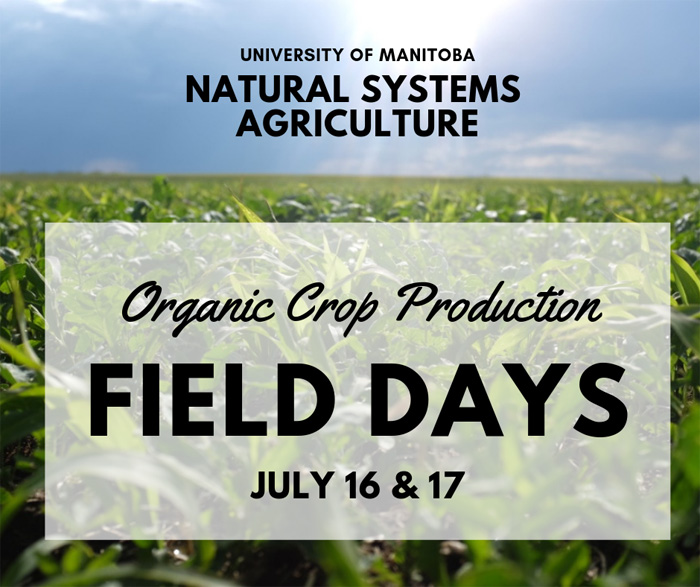Rethinking Lifestyle
Natural Systems Agriculture Field Tours

Although most of us are not farmers, all of us eat. Many of us are gardeners. If we pause to think, we all recognize the importance of food production, and by implication should have an interest in how the food we eat is produced. We all ought to think more critically about how the food we eat is produced, and to that end I want to draw attention to the field tours planned by the Natural Systems Agriculture program at the U of M this summer. The tours, of course, are intended primarily for food producers, but consumers who have an interest in how the food they consume is produced should also be interested.
Had average crop yields remained at the 1900 level the crop harvest in the year 2000 would have required nearly four times more land. Since 1900, Canadian and US crop yields have more than tripled. In France, yields have increased by a multiple of 5.2 and in China by a multiple of 3.8. Primarily, three technologies made this yield increase possible: the development of synthetic nitrogen fertilizer, the development of pest control chemicals and the breeding of plant varieties that responded to these ideal conditions.
In 1900, agriculture used no synthetic nitrogen fertilizer. Today’s agriculture, today’s food production, is utterly dependent on it. Without synthetic nitrogen, modern agriculture would collapse. The development of synthetic nitrogen is an monumental achievement on the one hand, but on the other, it creates a disquieting vulnerability. Ironically, virtually all agricultural research today is directed either towards achieving higher yields while optimizing nitrogen or towards increasing the efficiency of the use of nitrogen. The perpetual availability of synthetic nitrogen is assumed.
But all synthetic nitrogen is manufactured today comes from natural gas, a resource in limited supply.
The only alternative to synthetic nitrogen derived from natural gas is natural nitrogen. We know of no alternative source of synthetic nitrogen. This is why the work done by the Natural Systems Agriculture program, a program run by a small group of researchers is so important.
The Natural Systems Agriculture research group has planned three field tours this summer. They are inviting us to join them July 16th and 17th to see our organic crop and soil management research. They emphasize that all are welcome!
July 16th, Carman Research Station 6:30-8:30pm
- Mechanical weed control in cereals, dry edible beans and green manures
- Intercropping. Cereals and oilseeds intercropped with pulses
- Warm-season cover crops and cover crop mixtures for grazing
July 17th, Glenlea Manitoba 1:00-3:30pm
- Visit and learn from the oldest organic crop production plots in Canada (28 years)
- Rehabilitating “run down” organic systems with a short-term forage phase
- Manure management in organic production
- Overcoming soil N deficiencies in organic production through use of better performing green manure cover crops
July 17th, Libau, Manitoba 6:30-8:30pm
- Recycling nutrients from cities back to the land for sustainable organic production
- Nutrients include anaerobically digested municipal food waste; insect processed food waste; and struvite (nutrients extracted from municipal waste water).
- Transitioning low productivity forage land to high productivity organic grain production
Low input agriculture may not be important to the large corporations of this world, but it is vitally important to the people who depend on a healthy environment for survival.




